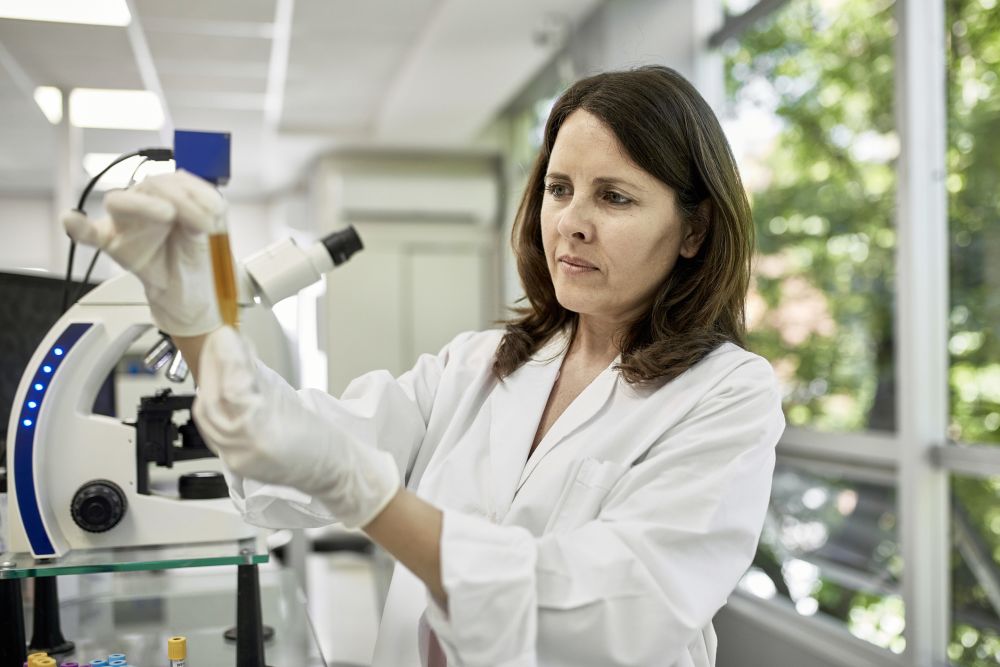Bladder cancer is the fourth most common cancer diagnosed in men, and men are four times more likely than women to develop it. The incidence for white males is two times higher than the incidence for Black, Hispanic, or Asian Pacific men. It typically occurs in patients 55 years and older, with the average age of diagnosis at 73.
The positive news is that bladder cancer rates have decreased in recent years.
1. How do I know if it’s a UTI or bladder cancer?
Both conditions have similar initial symptoms but stem from quite different issues. UTIs, or urinary tract infections, are caused by bacteria that enter the urethra and spread to the bladder. (The urethra is the tube that moves urine from the bladder and out of your body.)
Some common UTI causes include sexual activity or frequent spermicide use, lack of proper hygiene, and age factors--either in young children or much older adults. Pregnancy can cause UTIs due to increased pressure on the bladder, which can disrupt flow and lead to infection. Related hormone changes may also affect the urinary tract. Antibiotics are usually sufficient to clear a urinary tract infection.
Bladder cancer is caused by cell mutations in the bladder that become cancerous.
Though not widely studied, a connection between UTIs and bladder cancer has been observed. Recurrent UTIs and the resulting inflammation can create an opportunity for bladder cancer. Conversely, people with bladder cancer can suffer from more UTIs because the protective lining in the bladder has degraded.
2. What are the risk factors for bladder cancer?
The most common bladder cancer is urothelial carcinoma, also known as transitional cell carcinoma (TCC). The urothelial cells line the inside of the bladder. They help the bladder adjust to urine pressure and function as a protective barrier. Sometimes, these cells can multiply uncontrollably and form tumors.
Risk factors for developing bladder cancer include:
- Tobacco use (the most significant risk factor)
- Being 55+
- Being assigned male at birth, particularly a white male
- Family history of bladder cancer
- Certain genetic mutations
- Prolonged use of urinary catheters
- Previous radiation therapy in the pelvic area
- Drinking water treated with chlorine
Some risk factors are based on the sex assigned at birth. If a person has had surgical reassignment, they should discuss risk factors with their doctor.
3. What are the signs and symptoms of bladder cancer?
Symptoms of bladder cancer can mimic some of the initial signs of a UTI, which is why it’s important to see a doctor for diagnosis and follow up, especially if UTIs are recurrent.
Changes in urinary habits that can be symptomatic of bladder cancer include:
- Blood in the urine. Urine can change color--orange, pink, sometimes dark red. Blood does not have to be present at every elimination.
- Increased frequency of urination
- Difficulty urinating or having a weak stream
- Pain or burning during urination
- A sense of urgency even if your bladder is not full
- Urinating frequently throughout the night
Advanced symptoms of bladder cancer may include:
- Inability to urinate
- Lower back pain, usually on one side, but sometimes in the center of the back
- Loss of appetite and weight loss
- Fatigue
- Swelling in the feet
- Bone pain
Changes in urinary habits do not necessarily mean you have bladder cancer. Many of the listed symptoms can indicate other non-cancerous issues or infections. Still, it is important to be aware and speak with your provider about any changes in your health.
4. Can I be screened for bladder cancer?
There is currently no routine screening for bladder cancer. Several new tests look for substances in the urine that might indicate bladder cancer, such as chromosome changes or specific proteins. However, these tests are recommended for those at very high risk, such as:
- People who have had bladder cancer
- Patients born with certain bladder defects
- Employees who have been exposed to certain chemicals
5. What tests are used to check for infection or bladder cancer?
Urine Culture: Generally used to check for infection. Results require a few days.
Urinalysis: Checks for blood in the urine.
Urine cytology: Uses a microscope to looks for cancer cells in the urine.
Urine tumor marker test: Looks for proteins and other substances that may indicate bladder cancer. These tests detect some bladder cancers but can miss some as well.
Cystoscopy: Cystoscopy is used for suspected cases of cancer. A doctor uses a lighted cystoscope to examine the inside of the bladder. If abnormal tissue is found, the doctor will remove samples for biopsy.
Computed tomography (CT), MRI, or intravenous pyelogram (IVP): Imaging tests that look for tumors.
A CT scan can provide detailed information about the size, shape, and position of tumors in the urinary tract, including the bladder. It may also show enlarged lymph nodes. Like CT scans, MRIs can also show tissue details and can be useful in showing cancer that may have spread outside the bladder. An IVP is an x-ray taken of the urinary system after a special dye is injected into the body. The dye outlines the ureters and bladder and can show tumors.
6. How can I reduce my risk for bladder cancer?
- Quit smoking. Smoking is the most significant risk factor for bladder cancer.
- Avoid environmental exposures. Minimize contact with harsh household cleansers and workplace chemicals. Wear appropriate protective equipment and work in well-ventilated areas when using toxic products.
- Drink water throughout the day to flush toxins from your system and limit how long your bladder is in contact with those toxins. (Staying hydrated also reduces the risk of UTIs.)
- Empty your bladder regularly. Do not hold your urine.
Your provider can answer any questions or concerns you may have about bladder cancer. If you’ve recently been diagnosed with bladder cancer and would like more information or a second opinion, visit https://www.mnoncology.com/cancers-and-blood-disorders/cancers/bladder-cancer




